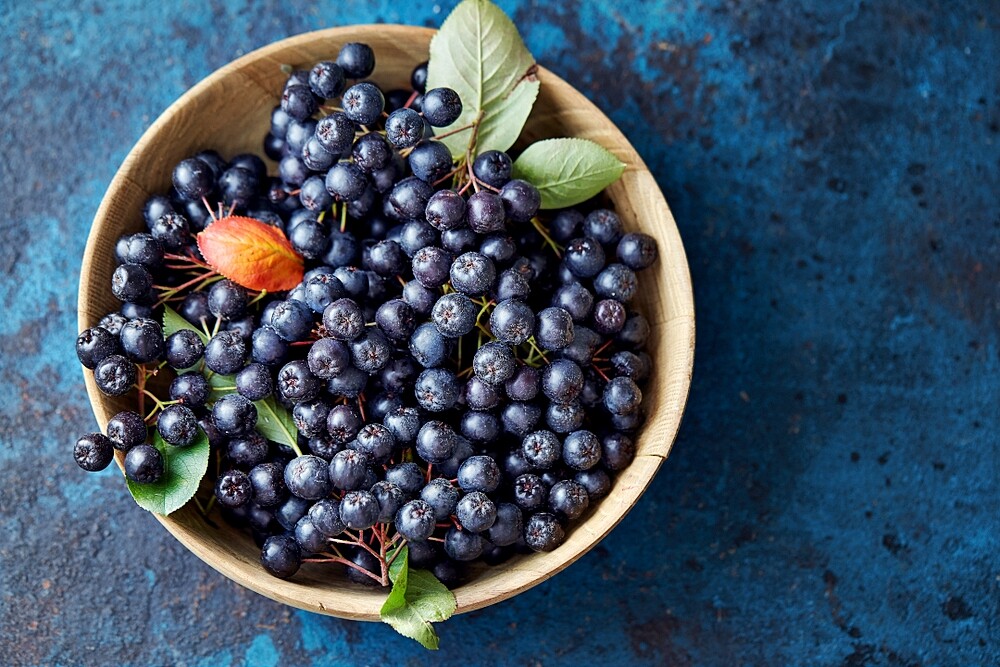Chokeberry (Aronia) is considered a healthy superfood berry with many advantages. But there are also downsides. You can find out what’s behind it here.
Chokeberry: Origin
- Aronia berries are also called black chokeberries. They belong to the rose family and originate from North America.
- The berries have a purple-black colour and are about the size of a pea. For more than 100 years now, the berry has also been common in Europe. The plants grow in flat regions as well as in mountains. The warmer the location, the more fruit sweetness there is in the berries.
- Aronia berries are often advertised as so-called superfood, as they contain many vitamins and plant substances. You can read all about their effects in this article.
Taste of chokeberry
Aronia berries contain a finely tart and sour taste. And this is completely independent of whether you consume them fresh or processed. Even when diluted with water, the colour remains purple-red. Natural plant dyes ensure this.
Chokeberry: Ingredients
- Iodine
- Iron
- Folic acid
- Provitamin A
- Vitamin B2
- Vitamin C
- Vitamin K
- Flavonoids
- Phenolic acids
Aronia: How healthy are they?
- Aronia berries contain many secondary plant substances. Due to the antioxidants present, they can fight free radicals in the body. These free radicals have a negative effect on cell metabolism and accelerate the ageing process.
- Due to the large number of vitamins, the berries can strengthen the immune system and prevent diseases. A positive effect or prevention of diseases such as cancer, which is often reported in the media, cannot be scientifically proven.
- Watch it: Aronia supplements often contain artificially added vitamins. Often the exact composition of the ingredients cannot be traced.
Use of chokeberry
- Although chokeberries contain relatively high levels of fructose, they still have a sour-tart taste. This is why most consumers prefer chokeberry juice or chokeberry jam.
- Aronia berries are also often offered as delicious dried fruits that go perfectly with muesli. They are also used as a colouring agent for sweets. There are also various food supplements that contain chokeberry as an ingredient, at least in part.
- Take care to dilute the aronia juice with water so that the taste is not so tart and stomach problems can also be avoided. However, you can also use the fresh berries to enhance muesli, yoghurt or ice cream.
Aronia: Is the consumption harmful?
- Aronia berries contain small amounts of amygdalin, which can release prussic acid in the body. Amygdalin is a toxic plant substance. It contains glycoside, which is split into almond acid nitrile glucoside in combination with water. In combination with other enzymes, this in turn decomposes into prussic acid.
- Prussic acid can lead to symptoms such as shortness of breath, cramps or enlarged pupils. In very serious cases, a blockage in the respiratory chain can even cause death.
- Does this mean you can’t eat chokeberries? No, don’t worry. You should only consume fresh fruit in small quantities. According to studies, processed products are not harmful even if consumed regularly.
- As a general rule, you should also prefer organic products in order to avoid potentially existing pesticide residues or contamination with heavy metals, which is a recurring problem, especially with products from faraway countries.

